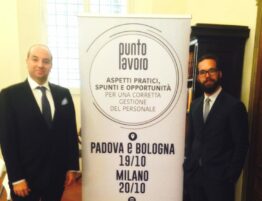
In Italy, according to art. 28, Legislative Decree no. 81/08, the burden of assessing the working conditions in which the employees are operating falls on the employer, so as to reduce or prevent the risks that could degenerate into occupational diseases due to work-related stress.
Stress has a negative impact on a professional and personal level.
In the first case it affects business productivity, in the second case it reflects negatively on the individual’s personal life and relationships, and also on his/her health conditions, since it could even result in accidents at work.
De-skilling, downgrading, improper transfer and any conduct by the employer towards an employee characterized by unfairness and injustice may cause significant damage to the latter’s physical and mental integrity.
Italian Scholars and case law have recently classified part of the aforementioned (illegitimate and unfair) conducts as a specific legal and factual model situation of employer’s behaviour, the so-called “straining” that ‒despite showing some similarities with “mobbing” (i.e. harassment)‒ differs from it for the way in which the vexatious action is perpetrated.
More precisely, in Italy the term mobbing applies whenever the harassment is characterized by a series of hostile behaviors, which are frequent and continuous in time and which involve damage to the employee’s health, which can be put in relation to the persecutory action carried out at work. The term straining is instead used when there is no continuity in the vexatious actions .
In civil law terms the incidence of straining on the employment contract stems from the infringement of art. 2087 of the Italian Civil Code in conjunction with art. 2103 of the Italian Civil Code, according to which the employer is required to take all appropriate steps to avoid both the risks inherent to the work environment, and those resulting from external factors and inherent to the place where that environment is located. Moreover, the worker’s safety is safeguarded by the Italian Constitution which sets forth that the employer must put the safety of the worker before his/her own profit.
From a juridical point of view damages, intended as a form of “danno esistenziale” (i.e. a kind of non-material damage), may be claimed by the employee upon the occurrence of a loss which must be observable and describable in order to be quantified.
The evaluation of such loss, which by its very nature is not pecuniary, can only be carried out by a Judge based on an equitable parameter, given the difficulty of applying economic or income-related parameters.
In the absence of regulatory parameters of legal or contractual origin, the prevailing merit case law has placed the entire remuneration received by the employee multiplied by the number of months in which the detrimental action was perpetrated as a basic criterion for the quantification of damages.
(Milan Office – Marcello Giordani – 0039(0)2 39680538)
 Print This Post
Print This Post








